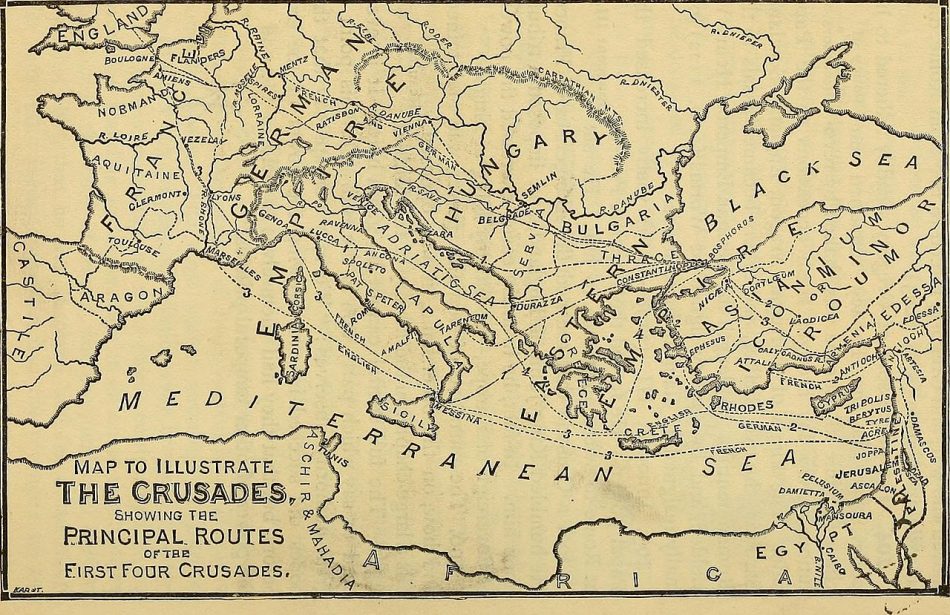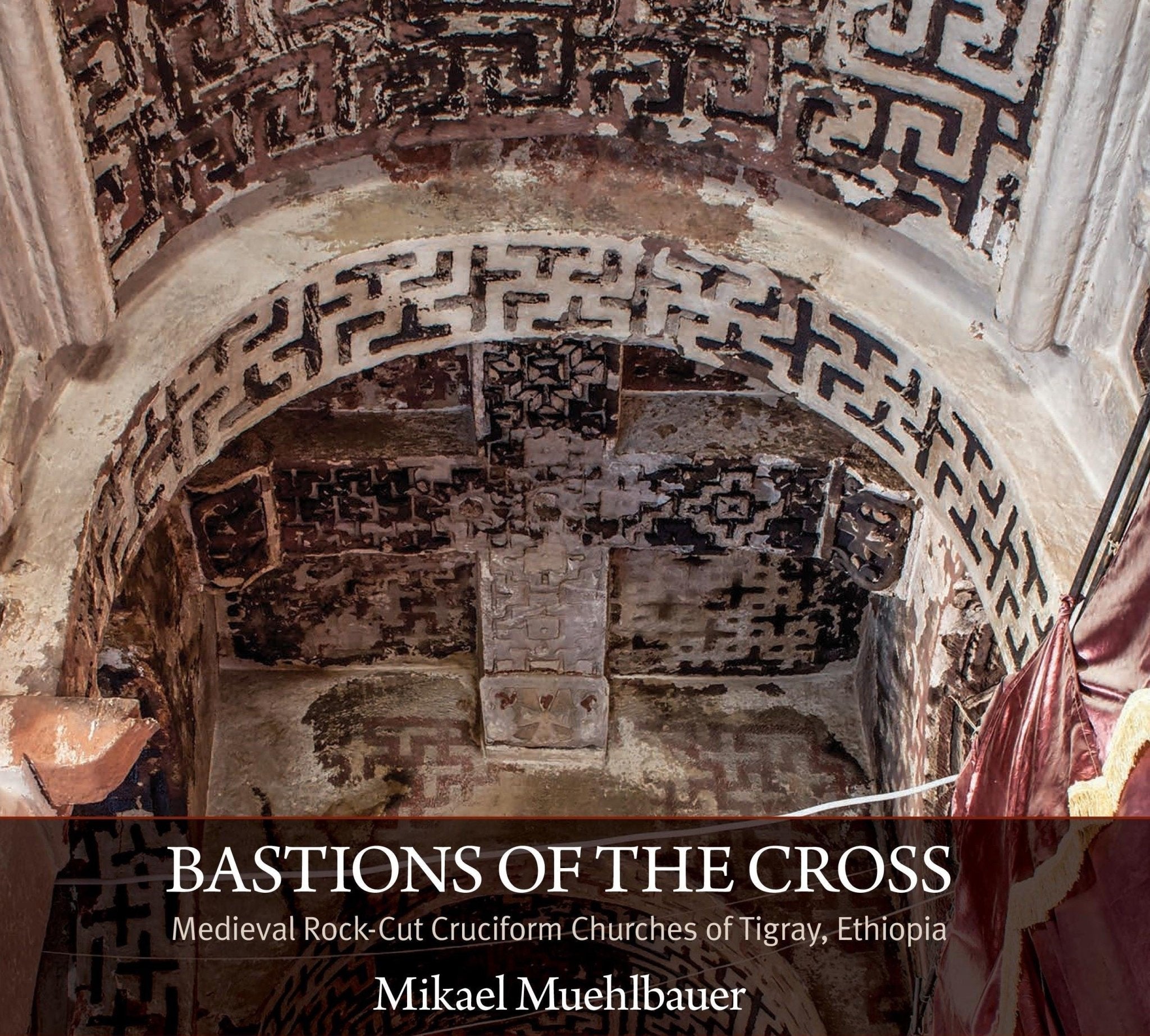Numbering the crusades
Recently I was chatting with a leading medieval historian about writing an article for our upcoming issue on the Seventh Crusade. The historian responded with interest, but also asked me to clarify, which was crusade was that? The answer is not obvious.

Map from 1870 showing the routes of the crusaders during first four crusades.
Historians have long been numbering the crusades, trying to categorize them into some kind of order. However, the way they have done so has been somewhat arbitrary, which has led to disagreement and confusion. In some books you can find the number of crusades going up to seven, while others list as many as ten. Some explanations are required.
One can begin by establishing that this only refers to the crusades that were against Muslims in the Middle East - or at least were supposed to go there. There were many other crusades officially launched by the Papacy, such as those against pagan peoples in the Baltic Sea region, or against the Cathars in southern France.
Historians are pretty much unanimous in what were the first five crusades:
The First Crusade (1096–1099) - aimed at overthrowing the Seljuk Turks’ rule of Jerusalem
The Second Crusade (1147–1149) - led by the kings of France and Germany, it was mostly notable for a failed attempt to capture Damascus.
The Third Crusade (1189–1192) - a response to the fall of Jerusalem to Saladin in 1187, this involved the kings of France and England, and the Holy Roman Emperor.
The Fourth Crusade (1202–1204) - while the initial aim of this crusade was to retake Jerusalem, it instead became focused with conquering the Byzantine capital of Constantinople.
The Fifth Crusade (1217–1221) - was an attempt to conquer Egypt.
Keep in mind these were not the only crusades that took place in the Middle East. Just after the First Crusade there was another expedition, known as the Crusade of 1101, which was followed by the Norwegian Crusade (1107-1111) and the Venetian Crusade (1122–24). We should not also forget about the Crusade of 1197, organized by Emperor Henry VI. None of these military expeditions got a number, although the reasons for this are not clear. One argument is that these were smaller crusades in terms of numbers, nor were they pan-European efforts, but rather launched by an individual state.
The Sixth Crusade is where things get confusing. In 1228 Frederick II, Holy Roman Emperor, sailed towards Syria intending to recapture Jerusalem. This would be an odd crusade, for it was successful - the Holy City would again be placed into Christian control - but this was done through a diplomatic agreement as opposed to any actual warfare. Furthermore, the legitimacy of the crusade could be questioned, as when it began Frederick had been excommunicated by the Pope (for not going on crusade earlier). All this has led to some historians to decline from referring to it as a ‘numbered’ crusade.
This leads us to the Seventh Crusade, which some call the Sixth Crusade. This was another attempt at conquering Egypt, led by King Louis IX of France, which lasted from 1248 to 1254.
We also have the Eighth Crusade and the Ninth Crusade, which were actually part of the same expedition. This was another war launched by Louis IX in 1270, which was supposed to retake the Holy Land. However, the first stop in this campaign was the city of Tunis in North Africa, and it was here that Louis died. This episode is called the Eighth Crusade. Some of the remnants of his army did eventually reach the Middle East, joined by Edward, the son of England’s King Henry III (he would later be crowned as Edward I). This has been called the Ninth Crusade, lasting from 1271 to 1272, it is generally considered to be an ineffective campaign, most notable for an assassination attempt on Edward. It is surprising that historians have divided this up into separate crusades, and one can find a few books that refers to this as the Seventh Crusade.
Finally, there was a raid on the Egyptian city of Alexandria in 1365 that has been called the Tenth Crusade. Well, at least Wikipedia mentions it, but outside of that it is hard to find any other references to it.
 The crusades offer historians much to debate about - even which crusade was which. Our upcoming issue on the Seventh Crusade - the one where Louis IX invades Egypt - is no exception, as it offers a complex story with many interesting characters. Look for that issue to be coming out at the end of 2018. You can also check out some of our previous issues that focused on the crusades:
The crusades offer historians much to debate about - even which crusade was which. Our upcoming issue on the Seventh Crusade - the one where Louis IX invades Egypt - is no exception, as it offers a complex story with many interesting characters. Look for that issue to be coming out at the end of 2018. You can also check out some of our previous issues that focused on the crusades:
Richard the Lionheart in the Third Crusade




